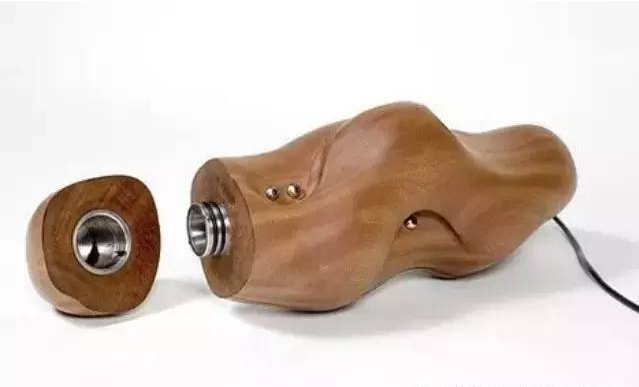Why does coffee smell better than it tastes?
For many people, the taste of freshly brewed coffee is the first pick-me-up smell in the morning. But many people say that they like to smell coffee but do not like to drink coffee, because coffee smells more mellow than it tastes! Why is that?

In his book Coffee Studies, Mr. Han Huaizong explained that coffee smells better than it tastes better because it is related to the sense of smell in front of the nose and behind the nose, which can distinguish thousands of different aromas, but the taste can only feel sour, sweet, bitter, salty and fresh. Five water-soluble flavors. However, SCAA does not include fresh taste in the water-soluble taste of coffee flavor wheel, so the water-soluble taste of coffee is mainly sour, bitter, sweet and salty, in which bitter and salty are pure water-soluble taste, but can not be smelled, which is a more negative taste, but sour and sweet are positive taste. It is worth noting that some sour and sweet tastes are water-soluble and volatile, and can be smelled and drunk.
Most of the more than 850 aromatic substances in coffee are only volatile, so they can only be identified by the sense of smell, and the other part has the bidirectional nature of volatilization and water solubility, so it can be felt by smell and taste, but coffee is the least pure water-soluble aromatic substances. it depends on taste buds to identify. Most of the aromatic substances in coffee are volatile, so it often makes people feel that it is more enjoyable to smell coffee than to drink it. In addition, the molecular weight of volatile flower and fruit aroma is low and light, and it is most likely to be cracked during baking. In principle, slow shallow baking is easier to retain the flower and fruit rhyme of coffee fans than fast shallow roasting or slow shallow roasting.
There are also some aromatic substances in coffee that are bidirectional, that is, they are volatile and water-soluble, such as organic acids such as formic acid, acetic acid (acetic acid) and propionic acid, as well as caramel sweetness, which are reliable in taste and smell. Relatively speaking, only a small number of aromas in coffee are water-soluble. The organic acids, malic acid, citric acid, lactic acid, oxalic acid, and inorganic phosphoric acid in coffee are not volatile, so they cannot be smelled and can only be distinguished by taste.
Popularly speaking, it is because we have two feelings about smell, "once when you inhale from the external environment, and the other when the smell is exhaled out through your nose."
The act of swallowing coffee sends an aroma from the inside of the mouth to the nasal cavity, stimulating the brain to produce a "secondary sense of smell," which is not as strong as it was when we first smelled it, creating a completely different, less satisfying feeling.
Although we have taste buds on our tongues, 80% of the taste we taste is actually sensed through the olfactory receptors in the nasal cavity. These receptors, which send messages to the brain, feel differently about smells that move in different directions.
It's like some cheese smells like smelly shoes, and once it gets into your mouth, you feel it through your nose in the other direction, and it becomes delicious.
"the coffee currently brewed smells great, but do you always feel a little disappointed every time you drink it? It never tastes as exciting as it smells. " It's just that the taste is changing with the direction.
However, studies have also pointed out that another reason for the change in coffee taste is that 300 of the 631 chemicals that make up coffee flavor are killed by saliva, causing it to change before we swallow.
In addition, studies have shown that only two known flavors, chocolate and lavender, feel the same when entering and emitting from the nasal cavity.
To sum up:
1. The sense of smell is far better than the sense of taste.
two。 Coffee gasification aromatics excess liquefied aromatics.
At the same time, it is also a test for our bean bakers. if we want to retain more aromatic substances, we can try to learn from the slow shallow roasting of northern Europe while ensuring the interpretation of the flavor of the beans themselves. improve the impression that coffee smells better than it tastes.
Important Notice :
前街咖啡 FrontStreet Coffee has moved to new addredd:
FrontStreet Coffee Address: 315,Donghua East Road,GuangZhou
Tel:020 38364473
- Prev

People in the coffee circle are so good at playing (the last one is on!)
People in the coffee circle are so good at playing! And professional and entertaining! Nothing can stop the imagination and entertainment spirit of the coffee man. The heartbeat bean grinder sees this product at first sight, and no one is tongue-tied. It's really a bean grinder. The design of this wooden electric bean grinder is quite interesting. The tools that can be used to grind powder every morning are no longer cold and strange, but can be like treasure hugs.
- Next

What is authentic? Cappuccino coffee suffers from "identity crisis"
Once upon a time, we couldn't tell the latte from the cappuccino; now, we can't tell the latte from the fragrant white. Even the status of cappuccino is now being questioned. Look, are you really drinking cappuccino?! Cappuccino coffee US media published an article on the 9th, saying that cappuccino is a kind of coffee drink loved by coffee fans. But now, what used to be a special coffee drink
Related
- What is Sicilian coffee? Is it good to make lemon coffee with cold extract and hand hanging ears?
- Analysis of common problems in hand-brewed coffee extraction: Why does hand-brewed coffee separate from powder and water
- Workers collapse! Lucky suspects that it will introduce freshly cut fruits?!
- 1-point subsidy recipients wear thousand-yuan watches?! Local response: For low-income households
- Can lightly roasted coffee beans be used to extract espresso? How finely should you grind high-quality coffee beans to make Italian latte?
- What is the difference between the world's top rose summer coffee and Yejia Shefi? What are the flavor characteristics of Yega Shefi coffee and Panama rose summer?
- The ceremony is full! Starbucks starts to cut the ribbon at a complimentary coffee station?!
- A whole Michelin meal?! Lucky launches the new "Small Butter Apple Crispy Latte"
- Three tips for adjusting espresso on rainy days! Quickly find the right water temperature, powder, and grinding ratio for espresso!
- How much hot water does it take to brew hanging ear coffee? How does it taste best? Can hot water from the water dispenser be used to make ear drip coffee?

